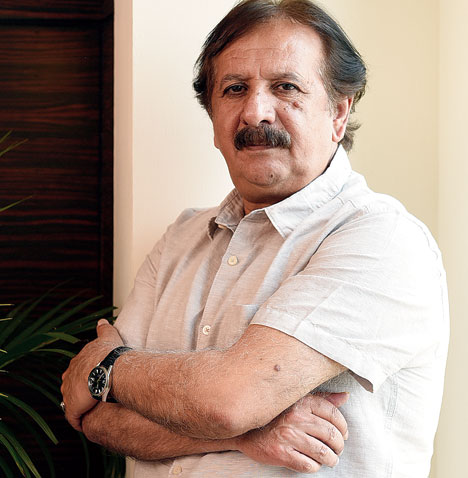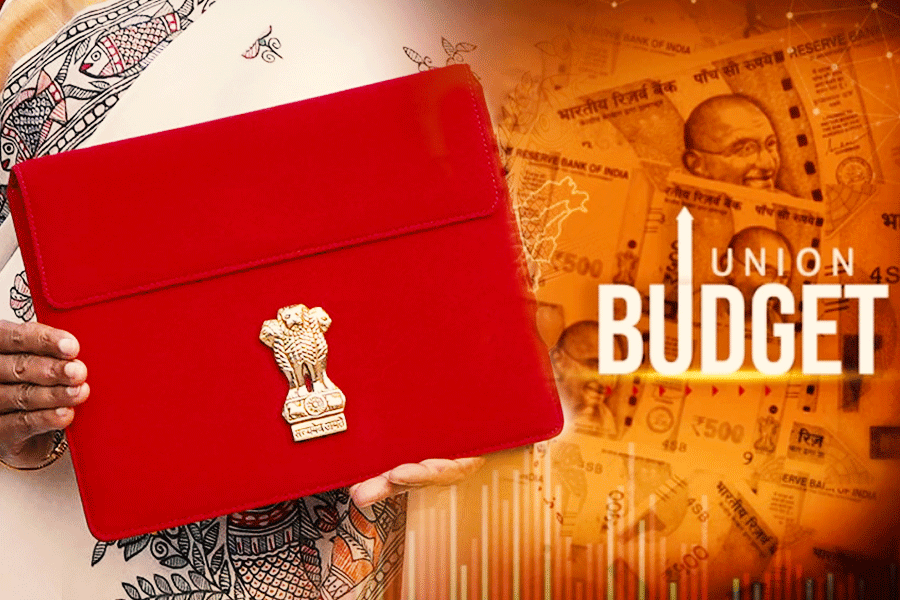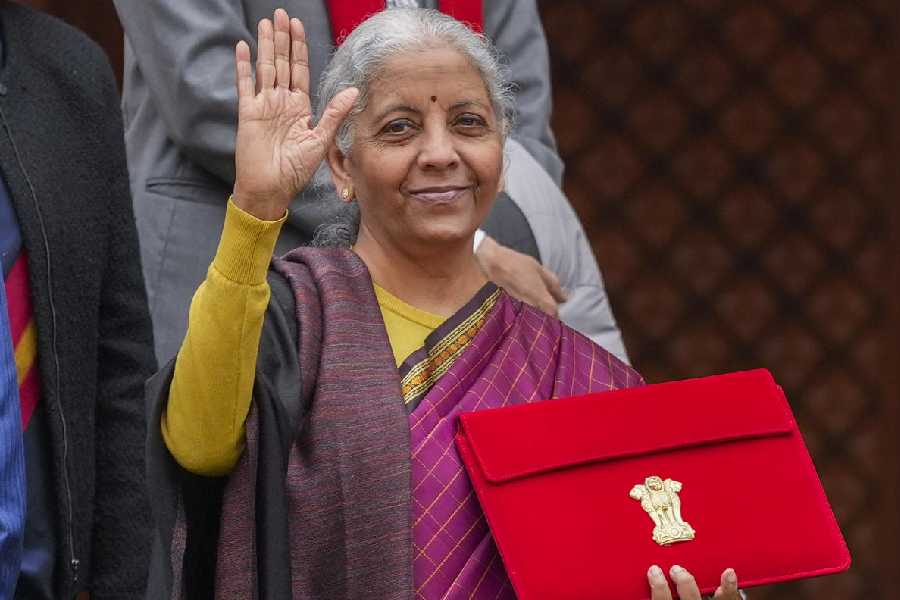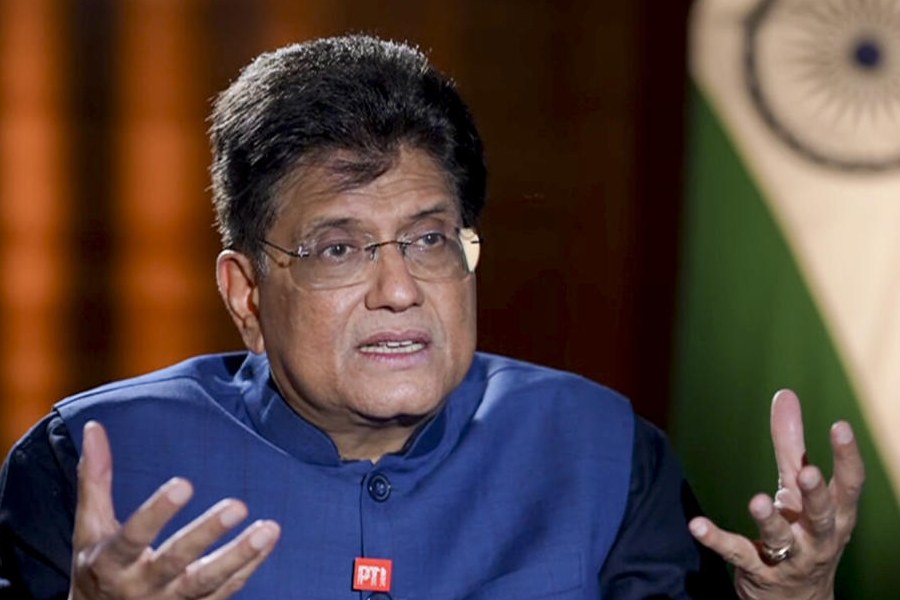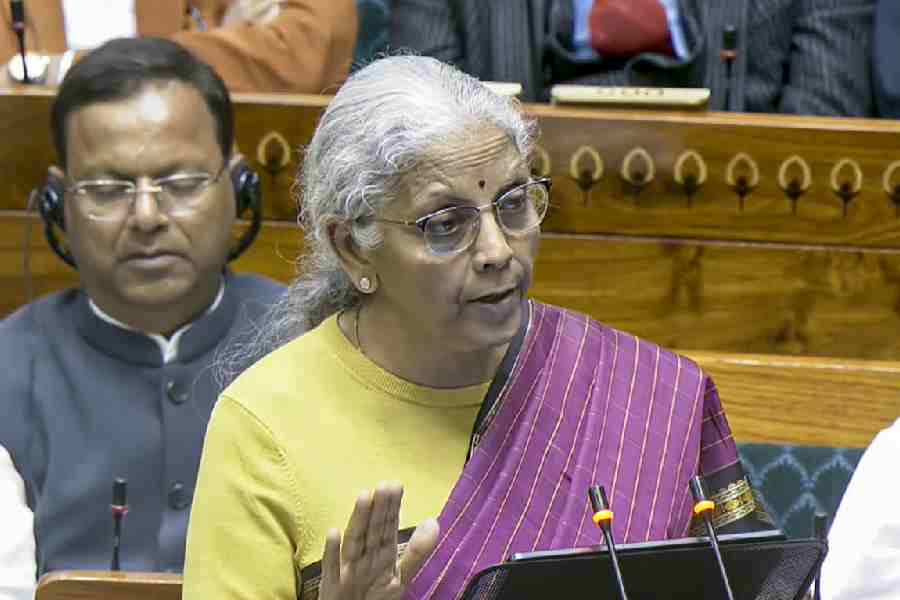
For fans of cinema, Majid Majidi needs no introduction. Over the last two decades, the Iranian filmmaker has carved a niche for himself with cinema that’s simple yet universal, touching upon themes as diverse as siblings setting off on a life-changing journey in search of a pair of shoes (Children of Heaven), the highs and lows of Afghan refugees living in Tehran (Baran) and a man’s life going upside down when an ostrich he cares for escapes from under his watch (The Song of Sparrows).
Now Majidi, whose Children of Heaven was nominated for an Oscar in 1998, has made his first Indian film — Beyond The Clouds. Shot in the Mumbai underbelly, the film, starring Ishaan Khatter and Malavika Mohanan, is now in theatres and carries forward Majidi’s trademark touches of sibling ties, fighting against the odds and happiness in hopelessness.
The 59-year-old filmmaker was in Calcutta last week to promote his film. Since Majidi speaks very little English, t2 chatted with him through a translator.
How’s it been for you in Calcutta this time? We know you have been here before…
I’ve been here before, but for a very short time. I first came here around 1996-97 for a film festival and the second time was about four-five months ago. It’s wonderful for me to be in the city of Satyajit Ray, a filmmaker who’s not only had a profound effect on my films, but also on my life. My travels to Calcutta may always be for a short period, but I have seen the city through Ray’s films. For a filmmaker like me, Calcutta’s dramatic locations have a special appeal. I feel you can place the camera anywhere here and the frame will talk.

What is it about Ray’s cinema that has had such a profound influence on you?
His cinema is social-issues-based and is steeped in reality. His characters are perhaps the most memorable I have watched in cinema, be it the Apu Trilogy or Charulata. And even now, whenever I want to watch filmmaking at its best and its purest, I go back to his Pather Panchali. It’s a classic that will be seen and discussed even a hundred years or more later.
You’ve said that you shot Beyond The Clouds in India because you always wanted to shoot a film in Ray’s country. Then why not set it in Calcutta?
That’s because I couldn’t really set the story anywhere apart from the Mumbai underbelly. Though I have travelled to Calcutta many times, I somehow know Mumbai as a city much more. Beyond The Clouds is a relationship story that somehow needed the backdrop of the underbelly in Mumbai to come alive.
But I plan to shoot my next film in West Bengal. The story will be set in and around the coal mines. I hope to make it into a bilingual, if not only in Bangla. I also plan to shoot in Calcutta for that film, especially the old parts of the city. We have just started writing the film.
If I have to mention a Calcutta connection in Beyond The Clouds, it will be Goutam Ghose who is not only a wonderful filmmaker, but also a great actor and that’s why I chose to cast him in a pivotal part. When I called him for the role, he accepted immediately and I am grateful for that. His performance in this film is phenomenal.

Your films have the recurring theme of the bond between siblings, particularly in the fan favourite Children of Heaven. Does Beyond The Clouds take that forward?
Yes, that’s true. In fact, the characters Amir (played by Ishaan Khatter) and Tara (Malavika Mohanan) in Beyond The Clouds can be looked at as grown-up versions of the children (Ali and Zahra) in my film Children of Heaven. Those kids had other challenges in Children of Heaven; now they’ve been thrust into the real world, into another society and that brings with it its own set of challenges. In all my films, family is very important.
What made you pick Ishaan Khatter and Malavika Mohanan to play Amir and Tara?
The casting took a long time… we auditioned a lot of people.
Including Deepika Padukone for Tara’s part…
Yes, we did test her, and she very graciously did the costume shoots with us. But finally, we decided against casting her because first, we needed a younger face and second, it would have been tough for us to shoot with such a big star on the Mumbai roads. But Deepika is a great actress and a thorough professional and I hope to work with her in future. Malavika and Ishaan were picked from many, many others and our decision to cast them has paid off… they are really wonderful in the film.
It must have been a tough film to shoot?
It turned out to be pretty smooth, actually. But in the beginning, I was a little scared because 70 to 80 per cent of my films are set in exterior locations… I rarely have sets. We shot in very crowded places in Mumbai, but I had a very professional crew. I only used Indian crew because I wanted a setup where everyone was familiar with the city.

In the past, you’ve said that as many people know you in India as they do in Iran because of your films. Do you feel that’s because your themes — nature, god, children, displacement, refugee crisis — resonate more with people here?
Yes, for sure. At the end of the day, humans, despite social backgrounds, are the same. The emotions they feel are the same. When you are talking about friendship, about human values… it means the same thing for people all over the world. Despite our differences, we all speak a common global language and that’s what you see in all my films. All my films thrive on something I always believe in... feel.
After so many years, what motivates you to get up every morning and keep making movies?
Talking about human issues and human values gives me the energy to keep working. The story of humanity never ends, and so my films will never run out of human-based subjects to talk about. I usually focus on the middle and lower middle-class of society — that section that doesn’t have the power to voice its concerns. I talk about their miseries and problems, but I also focus on their happiness.
Baran (2001) motivates me to make many more films, because through it I could speak about the plight of refugees. Life is a double-edged sword, it is two sides of the same coin and my films try to capture that. I am grateful that the life I live, the people I meet and the stories I read still give me the inspiration to make movies.
Are you familiar with the current Indian film scenario?
I have seen some of the big, successful commercial Bollywood films, especially the recent ones, but those don’t appeal to my taste (smiles). But they are technically sound — be it VFX, cinematography, sets. But I hope they can use this potential to reach up to international standards and touch upon more global subjects so that people all over the world identify with these films. American cinema has done that successfully. There’s no reason why Indian cinema can’t.


